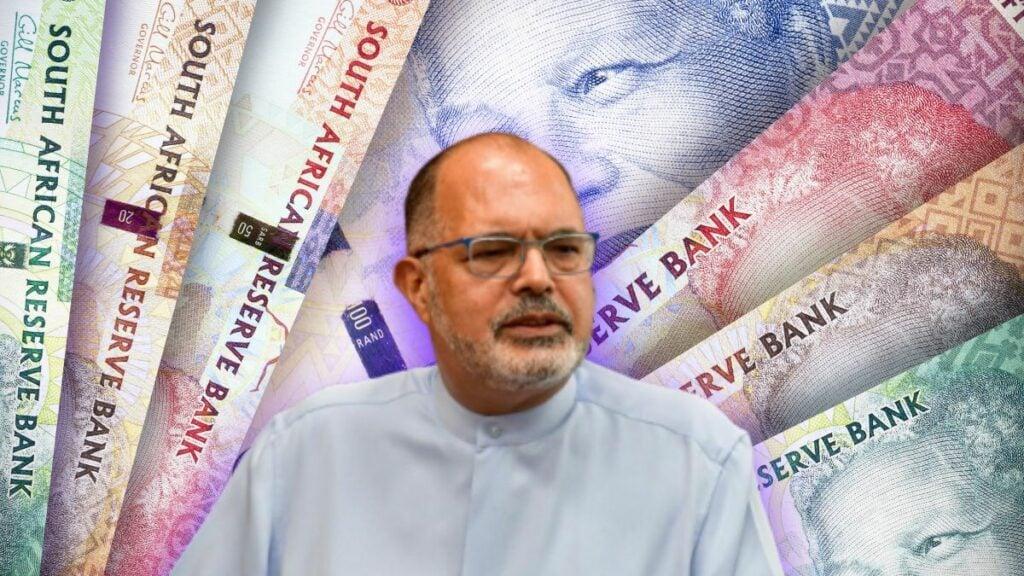Africa-Press – South-Africa. The South African Revenue Service (SARS) is expected to get more aggressive in the coming years with regard to tax collection as the government increasingly turns to the taxman to plug its deficit.
This is largely due to the government’s debt burden becoming unsustainable in a slow-growing economy, meaning that it can no longer rely on bonds to cover its budget deficit.
Instead, as seen earlier this year, it will have to turn to tax increases or enhanced revenue collection by pushing SARS to squeeze more from the existing tax base and close the tax gap.
While unpopular, the second option is more palatable than increasing tax rates to boost revenue, which is unlikely to be supported politically.
This is feedback from Efficient Group chief economist Dawie Roodt, who outlined the government’s difficult financial situation and why it will turn to SARS to raise revenue.
Roodt explained that it is very difficult to fund the government’s ambitious spending projects, such as the creation of a basic income grant and the National Health Insurance, even in a growing economy.
Government revenue remains largely flat in a stagnant economy, with tax revenue typically growing in line with nominal GDP growth.
Slow economic growth makes it nearly impossible to fund these programmes, which would require hundreds of billions of rands in additional revenue.
Roodt said this is even more true considering the financial difficulties the government faces, with a debt burden that is over 76% as a share of GDP.
Servicing this debt is increasingly crowding out spending in other areas, with the state’s debt-servicing costs amounting to over R1 billion a day in the current financial year.
“The Finance Minister depends on the economy to fund the state. With no economic growth, this becomes increasingly difficult,” Roodt told the State of the Nation podcast.
“State revenue will come under increasing pressure. It is already under pressure from decades of mismanagement and excessive spending.”
“This means that SARS will become more aggressive in trying to collect additional tax revenue to help the government bolster its finances.”
“People do not like SARS already as it is. People are aggressively trying to minimise their tax liabilities because of the heavy burden on those who do pay taxes in South Africa,” Roodt warned.
VAT hike still on the cards
Finance Minister Enoch Godongwana
The pressure Roodt speaks of can already be seen, with the Finance Minister trying to implement a VAT increase to raise revenue earlier this year.
While this ultimately failed, the minister warned that if revenue does not pick up sufficiently through economic growth or enhanced collection, a VAT hike may be on the cards next year.
Finance Minister Enoch Godongwana pencilled in an increase in tax revenue of R20 billion for the next financial year and the coming years.
These are from unspecified tax hikes, with Godongwana saying that enhanced revenue collection from SARS may result in tax hikes not being needed.
The Treasury did not include any savings estimates in the Budget from the reviews but highlighted that any such savings would negate the need for additional tax increases.
VAT is the most attractive tax for the government to hike, as it is broad-based and relatively easy to administer.
Personal income tax remains the largest source of revenue for the government, contributing 37.3% of total collections.
This tax is highly concentrated in the top 20% of taxpayers, who account for three-quarters of total collections. South Africa’s personal income tax rates also remain significantly higher than those in peer countries.
The Organisation for Economic Cooperation and Development (OECD) said that any increase in personal income taxes will not have the desired effect of increased revenue due to the highly concentrated tax base.
“Evidence suggests that raising the top marginal tax rate would have a limited impact due to Laffer curve effects,” the organisation said.
The value-added tax, the second-largest revenue source, contributed 35.4% of total tax revenues in the 2024 financial year, but remains below the OECD average.
The OECD said this suggests there is room to increase both the tax rate and its base while alleviating the impact on the most vulnerable.
Adopting complementary reforms to enhance collection is key to maximising the impact of any increase in the VAT rate. Otherwise, revenue gains may fall short of expectations.
Potential measures include enhanced registration, mandatory e-filing, and the introduction of electronic invoicing, which has proven very effective in other OECD countries.
This must be coupled with the continued strengthening of tax administration capacities to tackle illicit trade and improve compliance.
For More News And Analysis About South-Africa Follow Africa-Press






